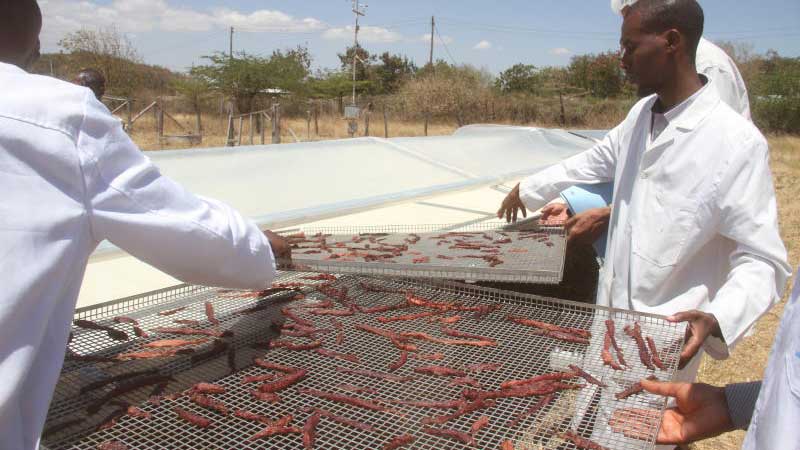×
The Standard e-Paper
Stay Informed, Even Offline

One of the key challenges for many farmers is how to dry their produce well to avoid running into losses before selling it off.
In a drive to preserve surplus produce, the University of Nairobi in partnership with the Ewaso Ng’iro North Development Authority (ENNDA) has started a reload project in Isiolo County that seeks to preserve a traditional meat product using a solar tunnel dryer.